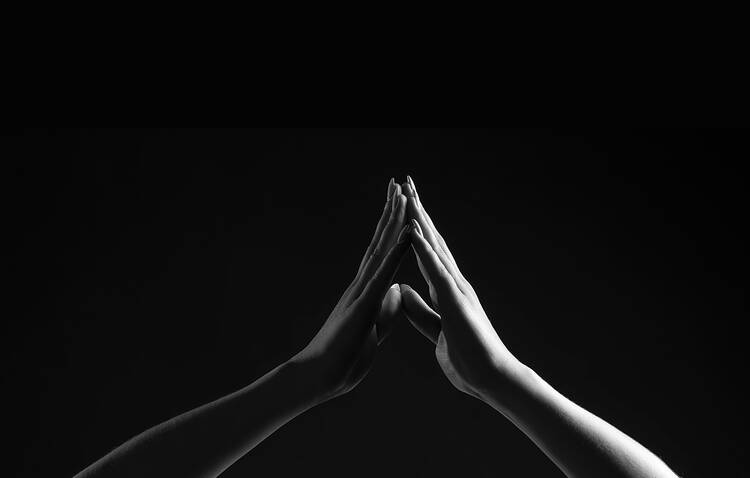A Reflection for Monday of the Seventh Week of Easter
Find today’s readings here.
“Now you are talking plainly, and not in any figure of speech.
Now we realize that you know everything
and that you do not need to have anyone question you.
Because of this we believe that you came from God.” (Jn 16:29-30)
In John Patrick Shanley’s 2004 play “Doubt: A Parable,” a nun, Sister Aloysius, who is the principal of a Catholic elementary school suspects that the parish’s pastor, Father Flynn, might be abusing a student. She embarks on what she believes to be a righteous quest to remove him—even though she has no proof. In the face of question marks, she finds comfort and motivation in a steely kind of certitude.
A few weeks ago, I saw the revival of “Doubt” on Broadway, starring Liev Schreiber and Amy Ryan. I won’t spoil the outcome of Sister Aloysius’ fight against Father Flynn, but her final line of the play stuck with me and kept me in my seat for a while after the performance concluded.
“I have such doubts.”
Doubts in what? The church? Herself? God? At the end of the play, we’re left to wonder what Sister Aloysius’ doubts are really about—and then we must sit with our own.
Doubt is a common part of a life of faith. Our doubts can be about life on earth or life beyond. Our religious journeys might be punctuated by moments of certitude or clarity, but much more often we are swimming in questions, if not active challenges, to what we believe.
You can have a kind of conversion experience, or pronounce that you are a true believer or feel Christ’s peace in a way that moves you profoundly. But a feeling of complete surrender will not be your permanent state of being from there on out.
I have that kind of journey on my mind when I read the disciples’ solid statement of faith in today’s Gospel. They tell Jesus that they now understand he is speaking literally, not in figures of speech, and that he doesn’t need to be questioned by anyone. As a result, they are convinced of this conclusion: Jesus has come to them from God.
Their words imply that they have been on a journey of uncertainty until now, of information-gathering about Jesus’ true nature. Now, they are finally at the end point of that investigation. It’s the surrender of faith, and there are no more questions.
I can’t help but wonder if these disciples woke up every day for the rest of their lives and felt this kind of assuredness. I don’t doubt that they went on loving Jesus and carrying his truth with them—but they were also human, right? It’s hard for me to believe that they were miraculously cured of all questions from this point on.
To have faith is to know peace. To have questions is to be shaken—but that doesn’t have to mean that you fall. A faith journey that involves both the light of certitude and the shadow of doubt is normal and healthy.








